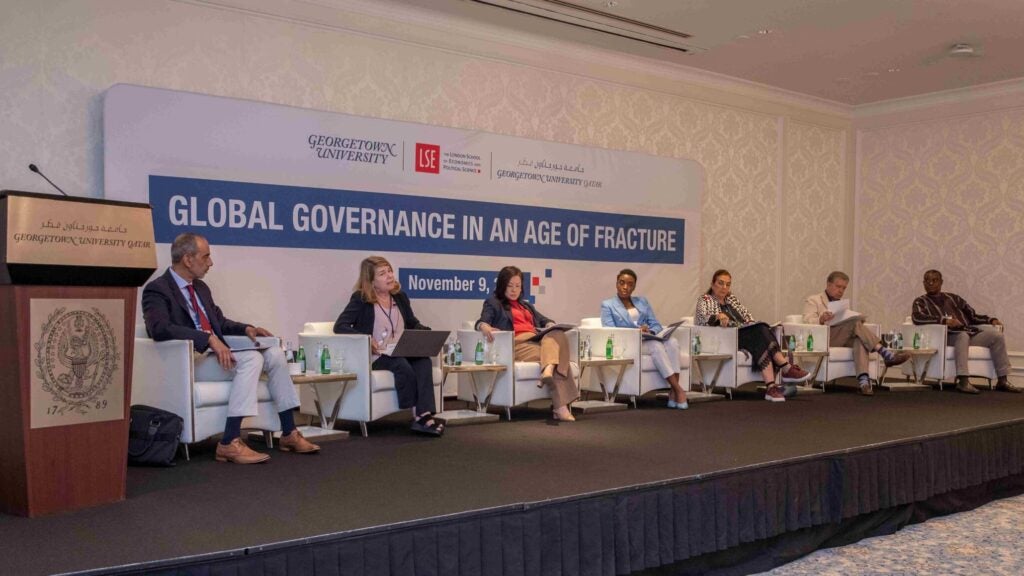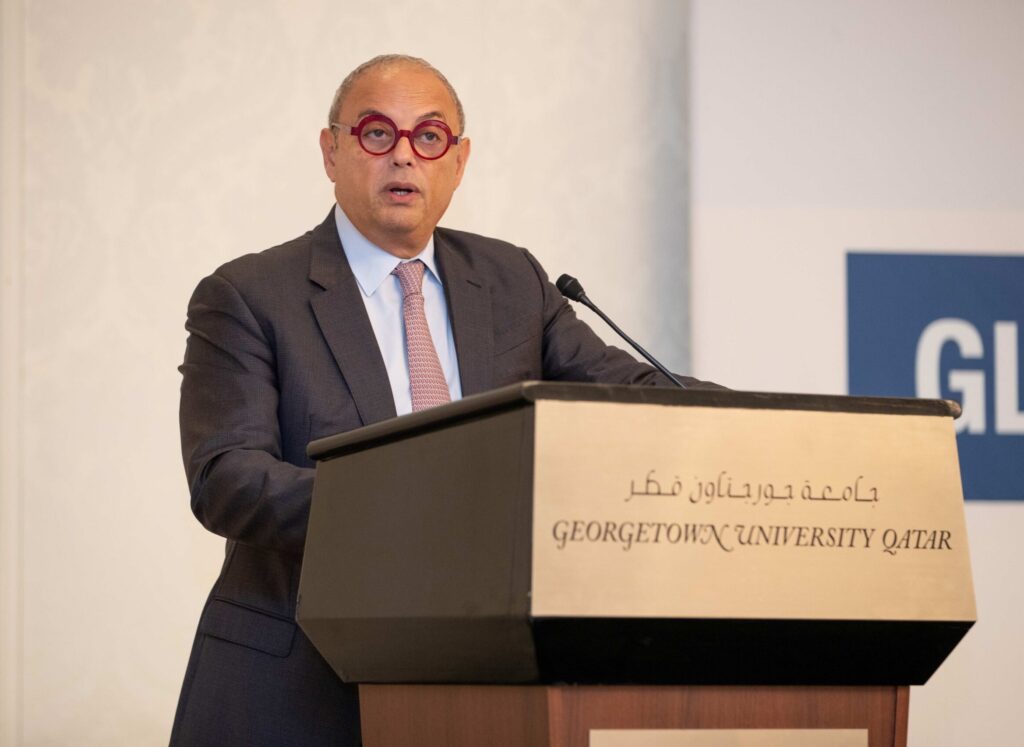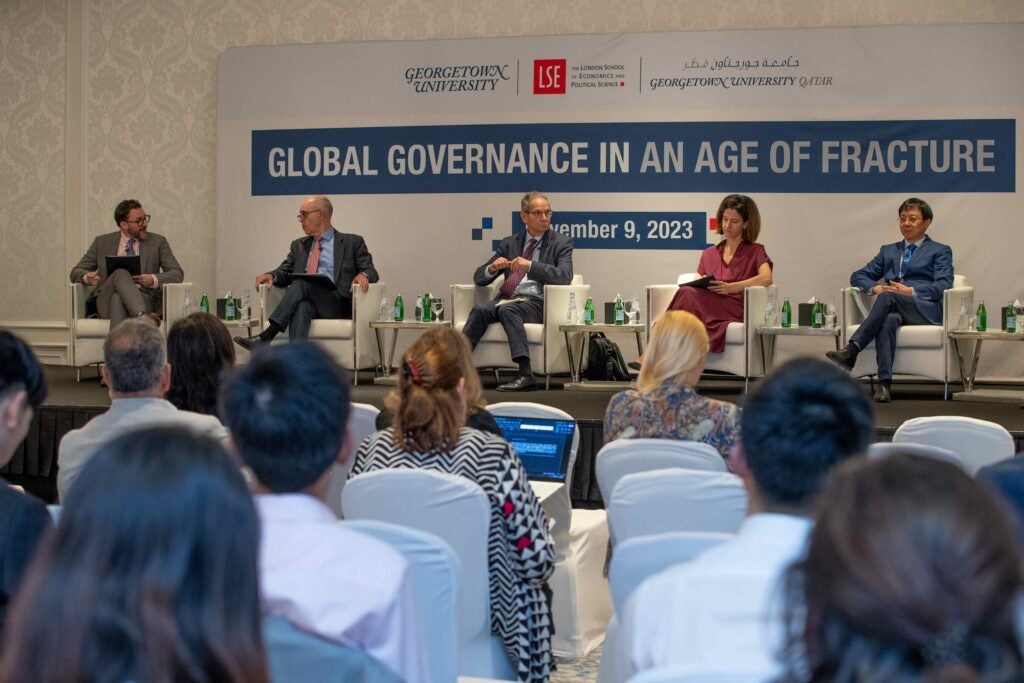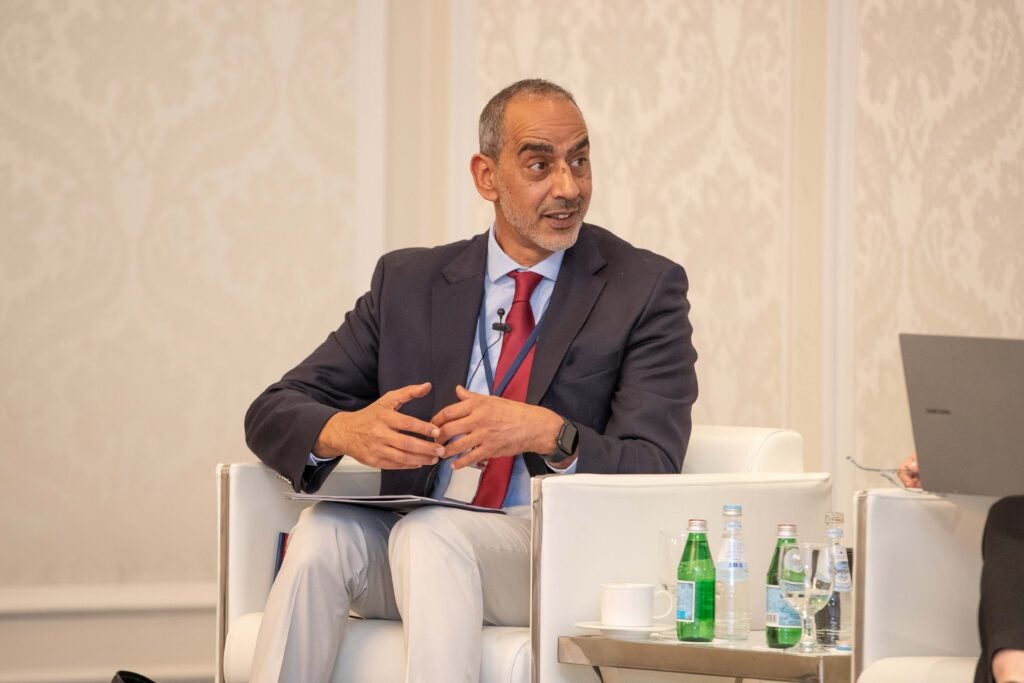How the Global South Governs Holds Key to Solving Major World Problems, Say Global Governance Experts

With global power rivalries making headlines across the world, Georgetown University in Qatar (GU-Q) brought together a group of experts from the Middle East, Asia, and Africa to interface with the Lloyd George Study Group on Global Governance, offering insight into inter-nation governance models from the global south capable of addressing some of the most challenging issues facing humanity.

GU-D Dean Dr. Safwan Masri welcomed the group, saying: “We are delighted to be the convening host for the working group over the next two days at our campus. Conversations like this, in this part of the world, are invariably enriched by the unique set of perspectives and a sense of urgency and relevance that could not be replicated elsewhere…it is a conversation that takes place in the world, not directed at the world.”
Global Governance in an Age of Fracture
A panel discussion taking stock of the current situation in international affairs and offering answers to existential crises facing humanity such as climate change, wealth inequality, and global market regulation, featured the core study group members talking about their search for new ideas and the proposed path forward to governing solutions to these challenges.
Moderated by Edward Kolla, Associate Professor and Faculty Chair at GU-Q, panelists included Dr. Peter Trubowiz, London School for Economics and Chatham House, Dr. Charles Kupchan, Georgetown University and the Council for Foreign Relations, Dr. Cornelia Woll, Hertie School, Dr. Wu Xinbo, Fudan University, and Dr. Andrey Korunov, Russian International Affairs Council.

The panelists discussed such challenges as growing global distrust in governance, uncertainty despite economic growth, and rising polarity. “This is an era of fracture in both domestic and international politics,” explained Dr. Kolla. Solutions discussed included empowering more humanitarian-minded leaders, fostering inter-nation dialogue, and the need to embrace plurality, incrementalism, and ambiguity in coalition-building.
The Role of the Region in Global Governance
Bringing a regional perspective, Dr. Tarik Yousef, Senior Fellow and Director, the Middle East Council on Global Affairs moderated a panel of experts discussing what global governance can learn from regional successes.

“There is a global shift of power not just from the West to the East, but also from the North to the South, and a number of countries in the Global South are becoming more relevant, important, and able to offer solutions,” said Dr. Yousef.
Panelists included Dr. Monica Herz, Pontifical Catholic University of Rio de Janeiro, representing Latin America, GU-Q professor Dr. Lynda Iroulo, GU-Q, and Dr. Eghosa E. Osaghae, Nigerian Institute of International Affairs representing Africa, Ambassador Androulla Kaminara, Distinguished Diplomat-in-Residence at GU-Q, representing the EU, Dr. Selina Ho, National University of Singapore, representing ASEAN countries, and Dr. Bahgat Korany, American University in Cairo representing the Middle East and North Africa.
Solutions to global governance problems presented from the regions included evidence of countries forming peaceful coalitions, respecting territoriality, and coming together to address health concerns, along with evidence of real progress toward enabling cross-border technological innovations. Inspiring examples of country coalitions embracing diverse governance models and inter-country peer review, practicing multiple paths to diplomacy, and successfully teaching major global powers to respect local models of cooperation for the greater good, were also shared.
For the study group preparing for several more days of closed-door meetings to arrive at global governance solutions, the panel even offered inspiration for their own work: in the ASEAN region, there is evidence that coalitions across academia, think tanks, and businesses effectively provided stability and facilitated international agreements, even when other means of diplomacy were ineffective.
About Lloyd George Working Group on Global Governance
Founded in 2022 by the Georgetown University School of Foreign Service and the London School of Economics Phelan US Centre, the Lloyd George Study Group on Global Governance focuses on analyzing and debating the shape of the emerging international system, how to adapt existing international institutions and policies to a rapidly changing landscape, and what new structures and arrangements might be needed to advance global governance. It aims to make a meaningful contribution to both scholarly and public debate and help close the growing gap between the demand for and the supply of global governance. This initiative honors British Prime Minister David Lloyd George and his role in guiding the First World War to a close and forging a new post-war order. It is co-financed by the Phelan US Centre and the Lloyd George family gift to Georgetown University.